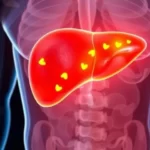Nasal polyps are soft, non-cancerous growths that develop in the lining of the nasal passages or sinuses. While they are medically benign, their impact on day-to-day life can be significant, affecting breathing, sleep quality, and even one’s sense of smell. Many individuals who suffer from nasal polyps experience chronic nasal congestion, postnasal drip, sinus pressure, or frequent infections. Traditional treatments often involve the use of corticosteroids or surgery, but there’s a growing interest in homeopathy as a gentler, longer-term solution. This guide delves into how homeopathy works, the remedies available, and how it compares to conventional approaches, providing clarity for those seeking natural, personalized care.
What Are Nasal Polyps?
Nasal polyps are typically the result of prolonged inflammation inside the nasal mucosa. This inflammation can be caused by allergies, infections, asthma, environmental irritants, or even immune system dysfunction. Over time, the inflamed mucosa forms sac-like, gelatinous swellings that can obstruct airflow through the nose and interfere with olfactory senses.
In the early stages, nasal polyps may go unnoticed. However, as they grow, they can lead to significant symptoms such as blocked nasal passages, facial pain, diminished sense of taste or smell, and sleep disturbances due to snoring or breathing difficulty. Some individuals even report a constant “dripping” sensation in their throat caused by postnasal drip. Differentiating polyps from conditions like sinusitis or allergic rhinitis requires a precise clinical approach.
Diagnosis: Identifying the Root of the Problem
Diagnosing nasal polyps typically starts with a patient history and physical examination. An ENT specialist may use a nasal endoscope, a thin tube with a camera, to visually examine the nasal passages. Imaging studies like CT scans or MRIs are sometimes recommended to determine the size and location of polyps, especially before any surgical intervention is considered.
In addition, a thorough differential diagnosis is crucial. Conditions like deviated septum, sinus infections, and allergic rhinitis can mimic nasal polyps in symptom presentation. Proper diagnosis ensures the chosen treatment is both safe and effective.
Why Homeopathy for Nasal Polyps?
Homeopathy offers a fundamentally different way to treat chronic conditions like nasal polyps. Rather than merely controlling symptoms, homeopathy aims to correct the internal imbalances that make an individual prone to such growth in the first place. This system of medicine operates on the principle of “like cures,” where substances that can produce symptoms in a healthy person are used in diluted forms to treat those same symptoms in illness.
The remedies are highly individualized, taking into account a person’s physical symptoms, emotional state, and constitutional makeup. This personalized approach is why two people with the same diagnosis may receive completely different remedies.
Unlike corticosteroids or surgical treatments, homeopathic medicine is non-invasive, safe for long-term use, and generally free from side effects. Its goal is not simply to shrink the polyps temporarily but to prevent recurrence by enhancing the body’s natural healing abilities.
Top Best Homeopathic Remedies For Nasal Polyps
Homeopathy offers a diverse range of remedies, each uniquely tailored to specific symptom patterns and the overall constitution of the patient. Rather than providing a “one-size-fits-all” solution, these medicines work deeply to correct the underlying tendencies that cause polyps to form and return. Here’s a closer look at some of the most trusted remedies:

1. Kali Sulphuricum
This remedy is commonly prescribed for individuals who have thick, yellow nasal discharge that often feels sticky or irritating. Patients may also complain of persistent sinus congestion, especially in the evening, along with itching in the nasal cavity. Kali Sulph helps when a chronic, rattling cough accompanies the polyps or when the person tends to feel worse in warm rooms and better in fresh air.
2. Calcarea Carbonica
Suited for individuals who are physically sluggish, cold-sensitive, and often overweight, Calcarea is a constitutional remedy for those who suffer from chronic nasal polyps due to lowered immunity. These patients usually sweat excessively, especially around the head, and may catch colds easily. It is instrumental in children with delayed development and frequent respiratory infections. Emotional traits often include anxiety, over-responsibility, and a love for routine.
3. Pulsatilla Nigricans
This remedy works best for gentle, emotional, and clingy individuals, especially children or women who experience nasal polyps with thick, bland, yellow-green mucus. Pulsatilla is indicated when symptoms shift frequently, such as nasal discharge changing location or texture. It often helps those who feel worse in warm rooms and better in open air and who are emotionally sensitive, seeking reassurance and attention.
4. Sepia Officinalis
Best suited for hormonal imbalances that may contribute to nasal issues, Sepia is often recommended for women approaching menopause or those dealing with menstrual irregularities. The nasal polyps may be accompanied by loss of smell, dryness, and chronic sinus headaches. Emotionally, these patients may feel overwhelmed, irritable, or disconnected from loved ones.
5. Natrum Muriaticum
It is ideal for individuals who are introverted, often emotionally reserved, and may have a history of grief or suppressed emotions. Nasal polyps, in this case, are typically linked with frequent headaches, blocked nasal passages, and watery nasal discharge. The patient may crave salty foods and prefer solitude. This remedy is also helpful when polyps are aggravated by exposure to sunlight or emotional stress.
6. Silicea
Silicea is a deep-acting remedy that addresses slow-healing, chronic polyps, especially in individuals who have weakened immune systems. These patients are often thin, chilly, and perspire heavily, especially on the feet. Silicea helps expel retained mucus and encourages the body to push out foreign material like polyps. It’s particularly effective when there’s recurrent infection or surgical scarring.
7. Arsenicum Album
This remedy suits meticulous, anxious, and chilly individuals who may feel worse after midnight. The polyps are often associated with burning sensations, thin nasal discharge, and breathing difficulties, particularly at night. These patients tend to fear illness, are highly organized, and seek constant reassurance. Arsenicum also addresses exhaustion and restlessness, especially during acute flare-ups.
8. Hepar Sulphuris Calcareum
Best for cases where polyps are inflamed and extremely sensitive, Hepar Sulph is suitable when there is pain on touch, redness, and thick discharge that may have an offensive odor. The person feels irritable, wants to stay warm, and is often oversensitive to cold air. It’s also valuable for post-surgical polyps that become infected or when polyps arise after frequent colds.
9. Thuja Occidentalis
Thuja is the go-to remedy for warty or cauliflower-like polyps, primarily when associated with skin ailments like eczema or a history of vaccination or suppressed discharges. It’s useful when the nasal growths bleed easily and there’s a greenish, foul-smelling discharge. Patients often feel embarrassed or self-conscious, have secretive natures, and report a sensation of something alive crawling in the nose or ears.
Each remedy’s choice is determined not just by the physical manifestation of the polyps but by the overall profile of the patient. It’s this depth of customization that makes homeopathy so uniquely effective in chronic cases.
Lifestyle and Dietary Adjustments Supporting the Healing Process
Healing from nasal polyps, especially via homeopathy, isn’t limited to just taking remedies. The body’s terrain needs to be fertile for recovery. Lifestyle choices can significantly affect the treatment outcome.
A key factor is inflammation management through diet. Foods high in sugar, dairy, and processed ingredients often contribute to mucosal inflammation. Replacing them with anti-inflammatory options like omega-3-rich foods, leafy greens, and antioxidant-rich fruits can support mucosal healing.
Hydration is another critical element. Drinking sufficient water helps keep mucus thin and reduces congestion. Practices like nasal irrigation with saline and regular aerobic exercise enhance sinus drainage and immune function.
Stress, a known trigger for inflammation, should also be addressed. Incorporating relaxation techniques such as meditation, yoga, or deep-breathing exercises can indirectly reduce nasal swelling by calming the immune response.
Homeopathy vs. Conventional Medicine Comparison
To make an informed treatment choice, it’s essential to understand how homeopathy compares with standard medical practices. Here’s a direct comparison based on key parameters:
| Aspect | Homeopathy | Conventional Medicine |
| Treatment Focus | Holistic, individualized care | Symptom-based, immediate relief |
| Side Effects | Minimal to none | It is possible, especially with steroids |
| Invasiveness | Non-invasive | It may involve injections or surgery |
| Cost | Generally Affordable | Often expensive with recurring treatments |
| Sustainability | Long-term immune balance | Risk of recurrence without prevention |
While both systems have their merits, homeopathy excels in chronic, recurring conditions, especially where the goal is long-term resolution and prevention.
Expected Recovery Timeline in Homeopathy
Unlike conventional medicines that act rapidly but temporarily, homeopathic treatment works in layers. Many individuals notice minor improvements like better sleep or less congestion within the first few weeks. However, it may take several months for significant shrinkage of the polyps or complete symptom relief.
The pace of progress depends on multiple factors:
- The severity of the condition
- Consistency in taking remedies
- Underlying causes, such as hormonal imbalances or allergies
- Lifestyle support, such as diet and stress management
Patience is key. Regular follow-ups with your homeopath can ensure your remedy is adjusted as your condition evolves.
Integrating Homeopathy with Other Therapies
You don’t have to choose between homeopathy and modern medicine. Many people benefit from combining both approaches, especially in complex or severe cases.
For example, corticosteroids might be used short-term to manage a sudden flare-up, while homeopathy works in the background to correct the more profound imbalance. Always consult both your homeopath and your conventional physician before mixing treatments to avoid any contraindications.
Monitoring progress is crucial. Keeping a health journal helps both you and your practitioner track improvements or setbacks. Adjustments to treatment should always be based on evolving symptoms and overall well-being.
Conclusion
Nasal polyps are more than an inconvenience; they’re often a sign that the body is in a prolonged inflammatory state. Homeopathy provides a viable and highly personalized approach for those who prefer natural, holistic healing. By addressing the root causes rather than suppressing symptoms, it encourages the body to regain balance, reducing both current symptoms and future recurrences.
For many patients, homeopathy offers what conventional medicine doesn’t: a long-term, side-effect-free strategy grounded in whole-body wellness. Whether used alone or alongside modern therapies, its value in managing nasal polyps is clear.
FAQs
How do you shrink polyps in the nose naturally?
Natural methods include using homeopathic remedies, doing saline nasal rinses, avoiding inflammatory foods, and incorporating anti-inflammatory nutrients like omega-3s and vitamin C.
What is the best medicine to reduce nasal polyps?
In conventional medicine, corticosteroid nasal sprays are commonly used. In homeopathy, remedies like Kali Sulphuricum or Teucrium Marum are tailored to individual symptoms.
What vitamins shrink nasal polyps?
Vitamins A, C, D, and E may support mucosal health and reduce inflammation, which can help shrink nasal polyps naturally over time.
How to get rid of nasal polyps quickly?
Quick relief typically comes from steroid sprays or surgery, but homeopathic remedies can provide lasting results by treating the root cause, though they require more time.
How do you stop polyps from growing in your nose?
Prevent recurrence by managing allergies, reducing inflammation, staying hydrated, avoiding triggers like smoking, and maintaining consistent treatment, whether conventional or homeopathic.
Can Ayurveda cure nasal polyps?
Ayurveda can help manage nasal polyps using herbal therapies, diet changes, and detox practices. However, it focuses more on long-term management than immediate elimination.











